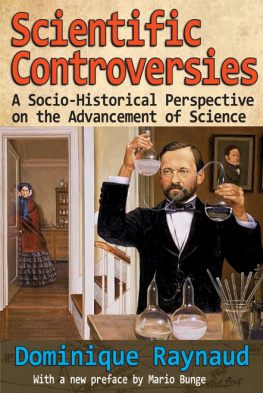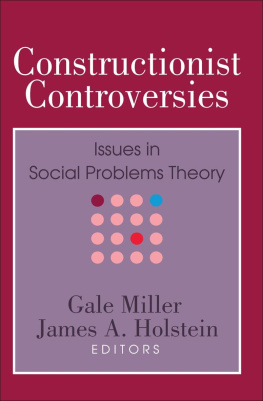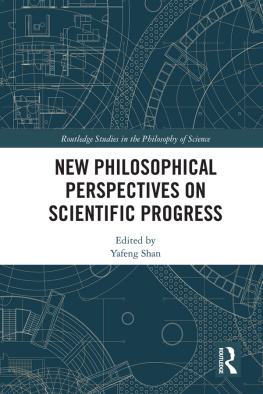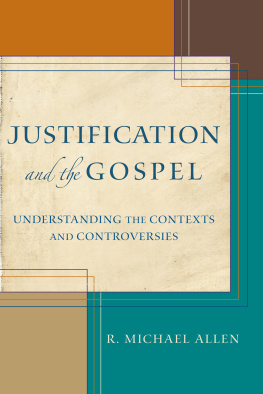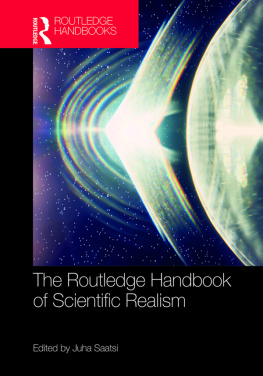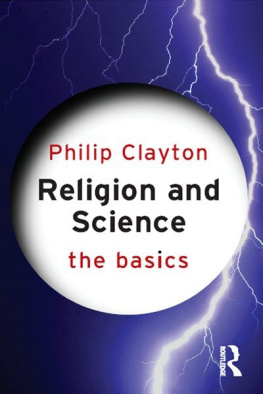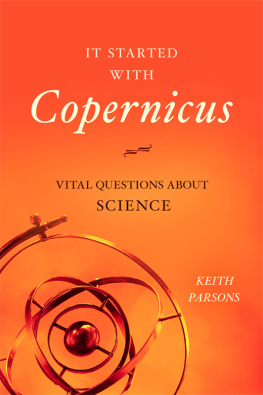Scientific
Controversies
Scientific
Controversies
A Socio-Historical Perspective
on the Advancement of Science
Dominique Raynaud
With a preface by Mario Bunge

Transaction Publishers
New Brunswick (U.S.A.) and London (U.K.)
Copyright 2015 by Transaction Publishers, New Brunswick, New Jersey.
All rights reserved under International and Pan-American Copyright Conventions. No part of this book may be reproduced or transmitted in any form or by any means, electronic or mechanical, including photocopy, recording, or any information storage and retrieval system, without prior permission in writing from the publisher. All inquiries should be addressed to Transaction Publishers, 10 Corporate Place South, Suite 102, Piscataway, New Jersey 08854. www.transactionpub.com
This book is printed on acid-free paper that meets the American National Standard for Permanence of Paper for Printed Library Materials.
Library of Congress Catalog Number: 2014024490
ISBN: 978-1-4128-5571-6
Printed in the United States of America
Library of Congress Cataloging-in-Publication Data
Raynaud, Dominique.
[Sociologie des controverses scientifiques. English]
Scientific controversies / Dominique Raynaud; translated from the French by Lisa C. Chien.
pages cm
In English.
Originally published in French: Sociologie des controverses scientifiques (Paris: Presses universitaires de France, 2003).
Includes bibliographical references and index.
ISBN 978-1-4128-5571-6
1. Science--Social aspects. 2. Science--Philosophy. I. Chien, Lisa C., translator. II. Title.
Q175.5.R3813 2015
501--dc23
2014024490
Figures
Plates
I am pleased to present Scientific Controversies: A Socio-Historical Perspective on the Advancement of Science. This is an expanded version of the work in French, previously published by the Presses universitaires de France, and translated with the joint support of Grenoble University and PLC (Philosophie, Langages & Cognition). I have written a detailed historical chronicle for (Al-Samarqands Native Theory of Controversies), a fascinating Arab theorist unknown to me until recently. Finally, I have elaborated further on my Epistemological Conclusions, to better reflect the role of incrementalism in the pursuit of truth.
I am thankful to Mario Bunge who agreed to write a Preface to this book, to Lisa C. Chien for her excellent translation, and to the Transaction Publishers team for commendably professional work.
D. Raynaud
December 30, 2014
Up until the 1950s, the study of scientific communities was a task for philosophers, sociologists and historians of science intent on finding truths about science, that much-celebrated yet still elusive animal. Suffice it to recall the studies by Henri Poincar, Emile Meyerson, Federigo Enriques, the Vienna Circle, Karl Popper, Ernest Nagel, Richard Braithwaite, Aldo Mieli, George Sarton, and Robert K. Merton.
In his classic 1938 paper on Science and the social order, in the new journal Philosophy of Science, Merton had argued that the peculiarities of basic science are disinterestedness, universality, epistemic communism, and organized skepticismnot the doubt of the isolated researcher but critical scrutiny by an entire community.
Unlike his later critics, Merton was not an improvised parachutist but the first professional sociologist of science. His teachers had been the leading sociologists of his dayPitirim Sorokin, George Sarton, and Talcott Parsonsas well as the amazing chemist, biologist, and sociologist Lawrence J. Henderson, who had rescued and popularized the concept of a social system. Besides, thanks to his wife, Harriet Zuckermann, Merton got to personally know many Nobel laureates, who told him details about what had made them tick, how they had worked, and how their respective scientific communities had now stimulated, now inhibited them.
In sum, around 1950 Merton was recognized as the most learned member of the science-studies communities. He was also the most balanced of them. The only one who, though not an idealist, stressed the disinterestedness of basic research. While not a positivist, Merton admitted the continuity and cumulative nature of science; and, though not a Marxist, he admitted the social embeddedness of the scientific community, as well as the economic and political pressures it was subjected to.
Not everyone shared the most popular images at that time. Some thought they resembled the descriptions of the elephant proposed by the blind Indian sages of legend. However, any of their descriptions would have helped in finding the elephant that had escaped from the circus, for every one of them held a grain of truth. Yes, truth, that black beast of the postmodernists.
Suddenly, in 1962, the elephant and the blind Indian sages vanished. In The Structure of Scientific Revolutions, Thomas S. Kuhn, an obscure scholar, held that scientists do not seek truth because there is no such thingnor is there a body of knowledge that grows and is being repaired and made ever deeper.
Kuhns central thesis was that, once in a while, there are scientific revolutions that sweep away everything that preceded them. Moreover, such radical changes would not solve long-standing scientific problems, but they would respond to alterations in the Zeitgeist or cultural fashion of the day, which Wilhelm Dilthey had invoked. Hence, scientists would neither find nor confirm nor confute anything. As his friend and comrade in arms Paul Feyerabend had declared, anything goes.
In short, according to Kuhn and Feyerabend, the classical picture of scientific research as the search for truth would be in crisis. Science would be a matter of opinion and social change. Hence, any amateur with enough chutzpah qualified for a job in one of the many science studies centers or science and society programs that proliferated over the past few decades.
This counter-revolution was so massive and so sudden, that it took the academic community by surprise and by storm. For example, I witnessed how Karl Popper, in his memorable confrontation with Kuhn at Bedford College, in the summer of 1965, adopted a defensive tactic and attempted to belittle his differences with Kuhn. Popper held that he too had never been interested in what Kuhn called normal science. He even attempted to win the good will of his interlocutor, whom he started to call Tom.
Karl did not ask Tom to exhibit examples of revolutions out of nothing and that replaced well-confirmed hypotheses that were also congruent with the bulk of antecedent knowledge. He could not resort to this tactic because of his radical skepticism and his contempt for the sociology of knowledge. Besides, Popper could not ask Tom for examples, because he had claimed that only counter-examples matter.
In his Popper and After (1982), the Australian philosopher David Stove showed that Poppers radical skepticism was close to the antiscientism of Kuhn, Feyerabend, and Lakatos. However, his critique was so irreverent, and the alternative Stove proposednamely a return to common sense and inductivismwas so naive, that nobody took him seriously.
Initially I underrated the antiscience antics of Kuhn, Feyerabend and their French counterparts. I thought that they were a passing fad that had gained notoriety just because it surfed on the wave of mistrust of science, that the Berkeley rebels had just denounced as an accomplice of the warlike and antienvironmental establishment.
I also thought that the amateurs who paraded as science experts were making use of the trick that Diderot had suggested to Rousseau when he came to Paris in search of instant celebrity: attack the prevailing opinion, that the sciences and the arts advance civilization. Rousseau followed this cynical advice, and his
Next page
